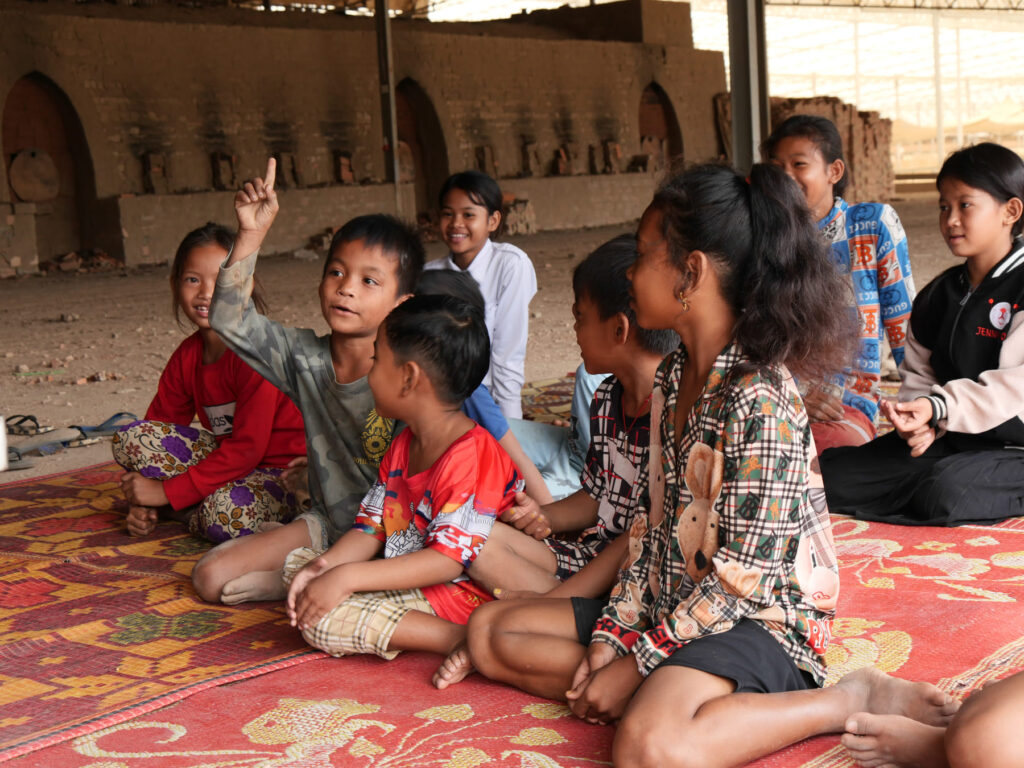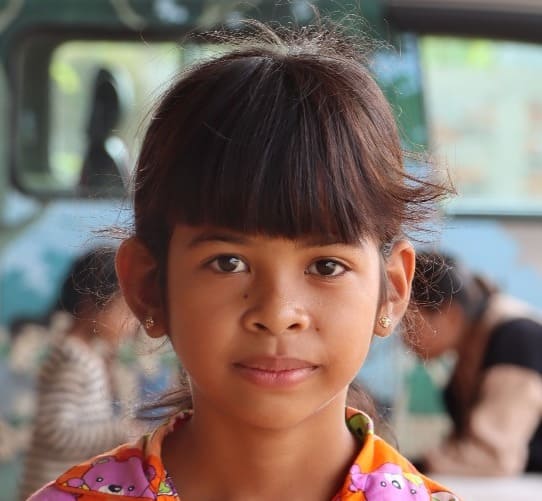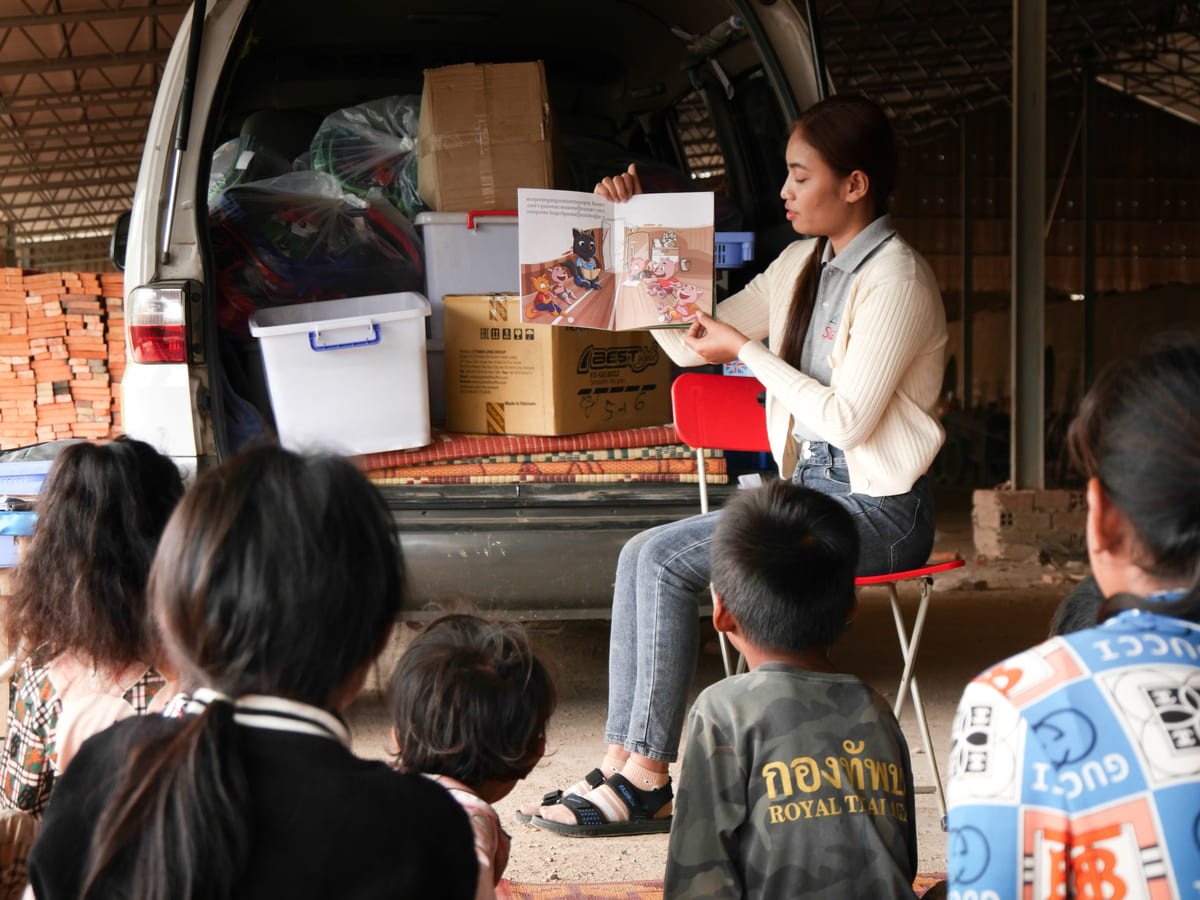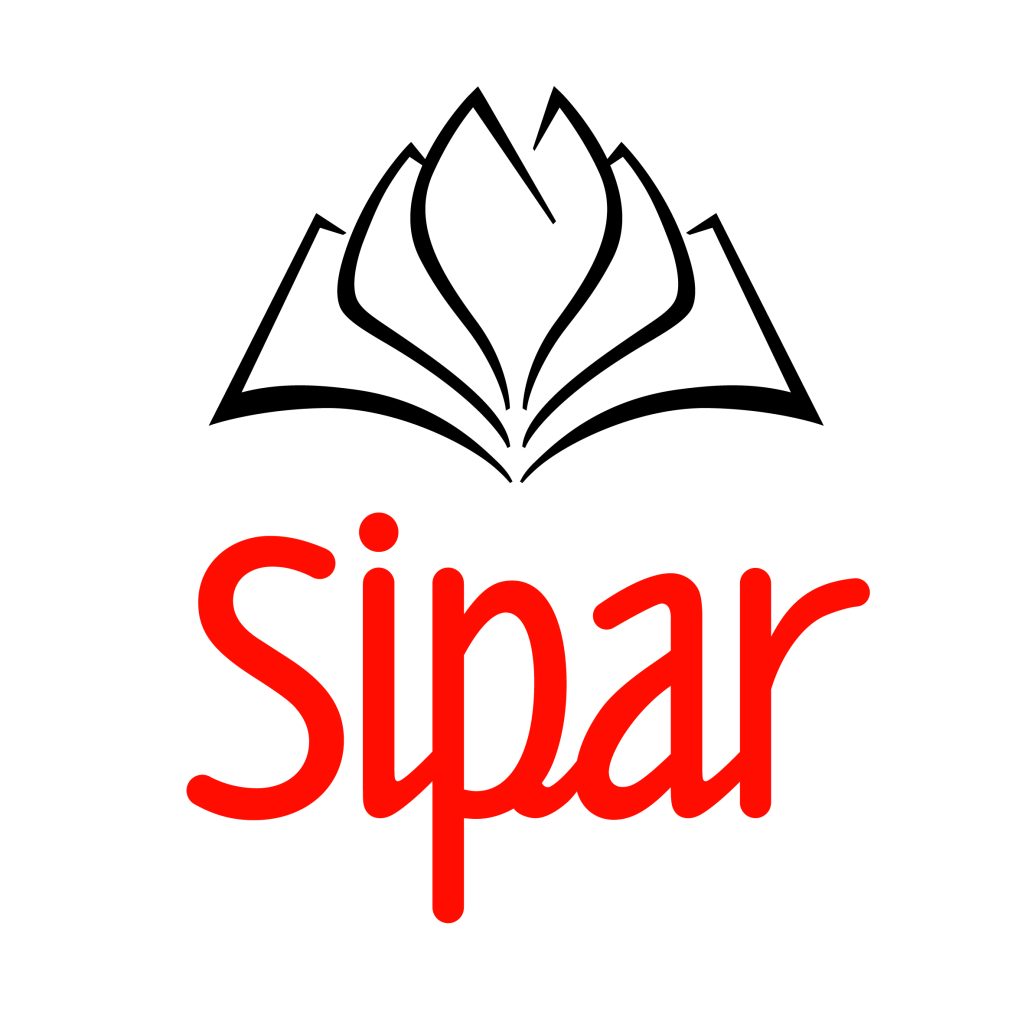
Brick factories are fairly secret places, where no NGOs enter. Living and working conditions are extremely difficult. Almost all the families are over-indebted and have asked the owner to cover their debts. Workers find themselves in a situation of dependence on their boss, sometimes spanning several generations. This is an extremely vulnerable population, especially children.
Since 2018, Sipar has been visiting 12 brick factories every week with two mobile libraries. Since October 2023, 20 additional brick factories have also benefited from this initiative, bringing the total number of sites served by four mobile libraries to 32.
They support the socio-educational development of children living on production sites and, more broadly, of teenagers and workers. Sipar's librarian-educators offer a range of activities for children around reading and writing, a book lending service, as well as tutoring and awareness-raising on crucial social issues (hygiene, nutrition, health, violence prevention...)
Our educative impact in brick factories
The impact on children is considerable: improved school enrolment, better literacy and numeracy, better socialization... Parents are also changing their perception of education and grasping its importance. By letting their child go to school, they hope for a better future for all.
The results of our June 2025 survey illustrate the tremendous work carried out by the teams at Sipar and our partner CWPD, exceeding our expectations. Read the article.

When the mobile library arrives at the brick factory, it's always a moment I look forward to. I love choosing books, especially those about fruit and vegetables, which teach me how to eat healthily. Thanks to the mobile library, I read two books a month, and the librarians bring the stories to life.
LENG, Dany
beneficiary of the mobile library in brick factories
Sipar multiplies its impact in brick factories

Since October 2023, thanks to support from Agence Française de Développement (AFD), Sipar has been serving 32 brick factories with four mobile libraries. The aim: to directly improve the living conditions of over 3,300 children and adults. This support is also helping to organize awareness-raising sessions for parents on social issues, and to set up an innovative program dedicated to out-of-school teenagers.
Over a three-year period, the project will also see the development of 20 micro-libraries, managed by volunteers from the surrounding villages. These spaces will give residents living outside the brick factories access to over 1,000 books for all ages and tastes.
Thank you to our pioneers partners the Fondation Luciole, The Comgest Foundation, l’AFD, Fondation Cassiopée, 1% for Education, La Voix de l’Enfant, Azickia Foundation, Fondation Lama and to Sense Foundation for their support on this ambitious program.
32
brick factories
4
mobiles libraries
3 300
direct beneficiaries
20
micro-libraries in rural villages
